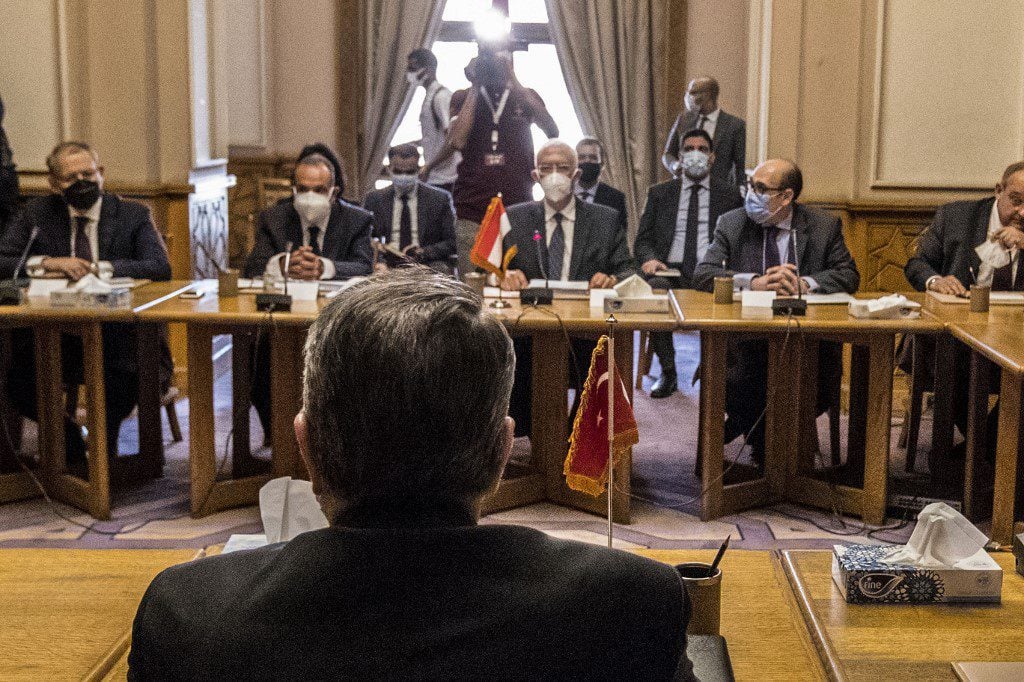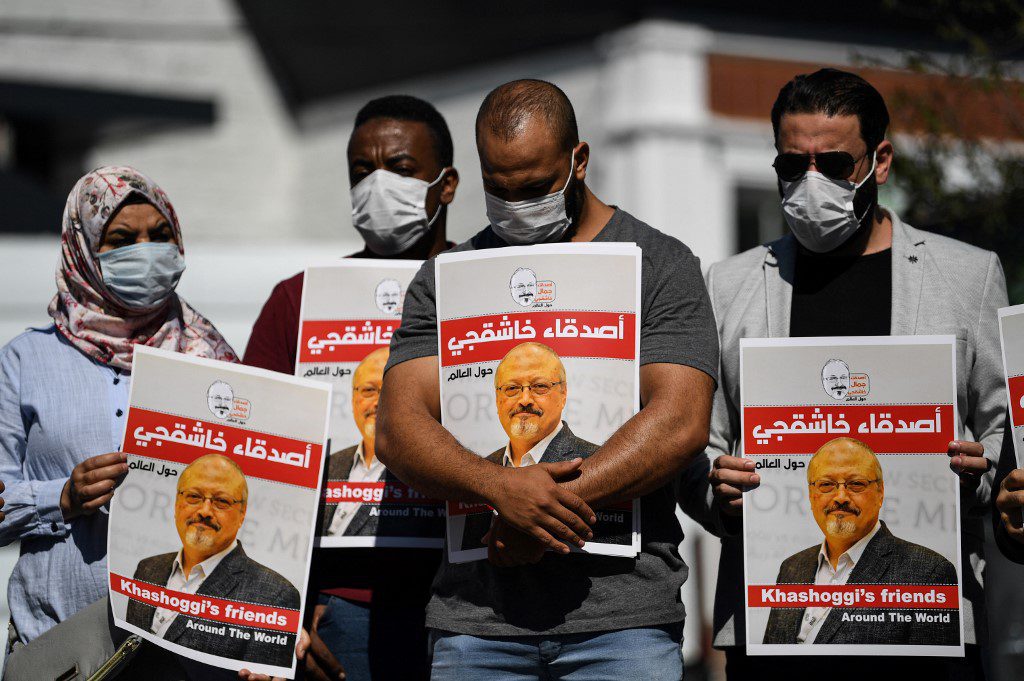
Mat Nashed
Turkey is trying to break out of its regional isolation by rehabilitating ties with Saudi Arabia and Egypt. During the Arab Spring, Turkey fell out of favor with both countries for backing Islamist forces across the Middle East.
At the time, Turkey inched closer to Qatar due to a shared ideological belief that political Islam could rescue the region from decades of turmoil, corruption, and impunity. And as popular protests swept across the Arab world, many prominent Muslim Brotherhood figures saw Turkey’s leader, Recep Tayyip Erdoğan, as a trailblazer in securing power through the ballot box.
His success was not repeated in the Arab world. Egypt was the first nation where the Muslim Brotherhood suffered a fatal blow. In June 2013, the country’s first democratically elected President and key Brotherhood figure, Mohamed Morsi, was overthrown.
Egypt’s new military leader, Abdel Fattah al-Sisi, ascended to power with the support of Saudi Arabia and the United Arab Emirates. The two Gulf regimes viewed the Brotherhood as a threat to their own survival and influence in the region.
Ankara was outraged at the coup in Egypt, setting up a hostile relationship between Sisi and Erdoğan. The two leaders kicked out each others’ ambassadors, while Egyptian Brotherhood members fled to Turkey out of fear of being killed or imprisoned. Now eight years later, Turkey is looking to patch up ties with Egypt to elevate its geopolitical standing and secure regional assets.
To build trust with Cairo, Ankara ordered Arab media outlets based in Istanbul to tone down their criticism of Sisi. Egypt’s government reportedly welcomed the move before bi-lateral talks took place in early May 2021. Still, experts predict that Cairo will use its full leverage to secure major concessions from Turkey before agreeing to reset relations.
Egypt has made its demands clear. They want Turkey to withdraw Syrian mercenaries and Turkish soldiers from Libya, where the two countries support opposite sides despite pledging support for the new Government of National unity (GNU). Turkish authorities are also under pressure to hand over prominent Brotherhood leaders that are wanted in Egypt on trumped-up terror charges.
Egypt has little to lose by making these demands. Its fraught relations with Turkey have not impacted bilateral trade. Egypt remains Turkey’s largest trade partner in Africa, with the value of business between the two countries reaching $4.86 billion last year.
Conceding to Egypt’s conditions will be tricky for Turkey. In Libya, Ankara fears that pulling out its troops and mercenaries could hurt its leverage in claiming territorial sovereignty in the eastern Mediterranean.
In November 2019, Turkey inked a maritime agreement with the previous Tripoli Government of National Accord (GNA). In exchange, Turkey deployed troops, drones, and mercenaries to rescue the capital from rogue General Khalifa Haftar, who is backed by Egypt.
The GNU said that it will honor that maritime deal, which enables Turkey to drill for gas discoveries in a wider Economic Exclusive Zone (EEZ). However, Ankara may be willing to reduce or even pull out all its mercenaries from Libya if Egypt scraps a maritime deal it inked with Greece in August 2020. Erdogan is hoping that Sisi prefers inking a deal with Turkey to access a wider maritime jurisdiction.
While not impossible, Egypt is unlikely to do so. For the past several years, Sisi has built strong ties with Greece, Israel, and the UAE, especially as it pertains to gas drilling in the Mediterranean. Aligning with Turkey could drive a wedge through that regional alliance.
It will be equally difficult for Turkey to hand over Brotherhood members to Egypt. That concession would destroy Erdoğan’s brand as a protector of Muslims and a champion of political Islam in the region.

Reproaching Saudi Arabia will also be challenging. Turkish Foreign Minister Mevlut Cavusoğlu met his counterpart Prince Faisal bin Farhan in Mecca on May 11. The visit was a positive step in overcoming the major rift between Ankara and Riyadh, spawned by the latter’s assassination of Saudi journalist Jamal Khashoggi in Istanbul two years ago.
Turkey’s goal is clear. Their first priority is to convince Saudi Arabia to end its informal boycott on Turkish goods, which has resulted in a 90 percent decline in Turkish exports to the Kingdom. Conventional wisdom suggests that Turkey could patch up ties rather quickly if it intervenes to end the trial of 20 Saudi suspects in absentia, all of whom stand accused of masterminding or executing the killing of Khashoggi. But Turkish officials told Middle East Eye that there is no chance of that happening. “Justice will prevail,” insisted one official.
Nevertheless, Turkey’s presidential spokesperson, İbrahim Kalin, said that Ankara respects Saudi Arabia’s verdict on the Khashoggi murder, which sentenced eight people to between seven and 20 years in prison.
“They had a court. Trials have been held. They made a decision, so we respect that decision,” Kalin told Reuters on April 25.
The U.N and Rights groups criticized the verdict for scapegoating low-level officials for an assassination that the Crown Prince Mohamed bin Salman ordered.
Despite Turkey’s softened position on the Khashoggi murder, Riyadh seems hesitant to draw closer to Ankara. The Saudi Foreign Minister did not even release a statement after meeting with his Turkish counterpart. More concerning, Saudi Arabia went ahead with closing eight Turkish schools in the Kingdom shortly after the talks.
Still, Saudi Arabia is aware of the benefits of reconciling with Turkey. Erdogan said that the Kingdom has expressed interest in buying Turkey’s sophisticated armed drones, which were deployed with great success in Nagorno-Karabakh and Libya.
Any military edge that Riyadh acquires from Ankara should not be understated. MBS is still weary of Iranian hegemony, which could push him closer to Ankara to balance Tehran’s influence in the Arab world.
That does not mean regional divisions will wither away. The bloc of Saudi Arabia-the UAE-Egypt is still very much at odds with Turkey-Qatar. However, a shared pragmatism offers hope for more cooperation in the short to medium term.
In the end, the global community should encourage Saudi Arabia and Egypt to repatch ties with Turkey. That alone could thwart armed conflict between their respective proxies by opening channels for diplomacy.


